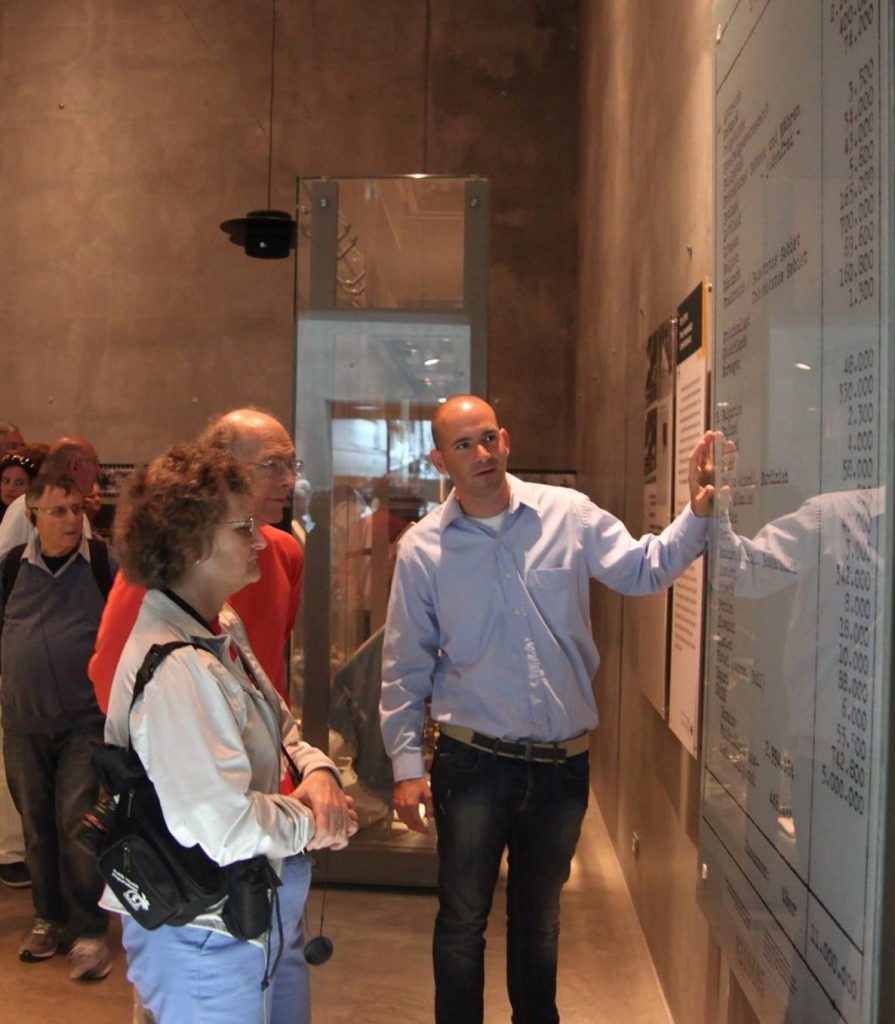This post is about the infamous Wannsee Conference. Every visit to the Holocaust museum is an emotional visit for me. One of the climactic moments is when I’m standing and explaining about the Wannsee conference. It is because of this conference that the Holocaust is so different from any other genocide to this day. The meeting, held in Jan 1942 attended senior government officials but not decision-makers like ministers. Due to that fact, historians believe that a couple of months before, probably around October-December 1941 Hitler already gave the command the annihilate the Jews of Europe. Therefore the conference didn’t come together to decide the extermination of the Jews of Europe but to optimize it.
Wannsee Conference and the Holocaust
The key to understanding what makes the Holocaust so different from any other genocide is a document presented in the Yad Vashem Holocaust Museum. This document was written by Adolf Eichmann that wrote the protocol of the conference. The document is actually a list that has two columns. On one there is a list of countries and on the other, there is the number of Jews in each country. We can extract interesting information from that document for example England had an estimated 330,000 Jews but was England ever conquered by the Nazis? the answer is No.
But the ‘Final Solution’ was a universal decision that meant to include all the Jews. In the beginning only in Europe. But eventually, the idea was that when the Nazis would win the war they would annihilate the entire Jewish people worldwide. Another interesting figure in Albania that next to it there is a negligent amount of 200 Jews. This goes to show you that the final solution was not just universal but also total. In other words till the very last Jew. Imagine what did it mean to catch those 200 Jews in Albania? The Nazis would have had to chase the Albanian Jews down the streets and seize them literally with a clipper and send them to the extermination camps.
The Conclusions:
These two characteristics next to the diabolic Nazi ideology turns the Holocaust into an unprecedented event in history. In fact, this is the first time in the history of genocides that we have the equation of extermination for extermination. In prior genocides there was always a context; One ethnic group tries to take out another or one social class trying to eliminate the other. But in the Holocaust, there was not context. What did a Jew in France do wrong to the Nazi regime? or figures like Albert Einstein that his german citizenship was revoked and he had to leave for exile?
There are actually more characteristics that turn the Holocaust into an unprecedented event in genocide history. But on that, I will elaborate on a longer post about What Makes The Holocaust So Different From Any Other Genocide?
